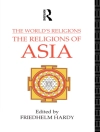The German Empire, its structure, its dynamic development between 1871 and 1918, and its legacy, have been the focus of lively international debate that is showing signs of further intensification as we approach the centenary of the outbreak of World War I. Based on recent work and scholarly arguments about continuities and discontinuities in modern German history from Bismarck to Hitler, well-known experts broadly explore four themes: the positioning of the Bismarckian Empire in the course of German history; the relationships between society, politics and culture in a period of momentous transformations; the escalation of military violence in Germany’s colonies before 1914 and later in two world wars; and finally the situation of Germany within the international system as a major political and economic player. The perspectives presented in this volume have already stimulated further argument and will be of interest to anyone looking for orientation in this field of research.
Inhaltsverzeichnis
Introduction
Cornelius Torp and Sven Oliver Müller
PART I: THE PLACE OF IMPERIAL GERMANY IN GERMAN HISTORY
Chapter 1. When the Sonderweg Debate Left Us
Helmut Walser Smith
Chapter 2. The Impossible Vanishing Point. Societal Differentiation in Imperial Germany
Benjamin Ziemann
Chapter 3. Was the German Empire a Sovereign State?
Dieter Grimm
Chapter 4. Theories of Nationalism and the Critical Approach to German History
John Breuilly
PART II: POLITICS, CULTURE AND SOCIETY
Chapter 5. The Authoritarian State and the Political Mass Market
James Retallack
Chapter 6. Using Violence to Govern: The German Empire and the French Third Republic
Heinz-Gerhard Haupt
Chapter 7. Woman Suffrage and Antifeminism as Litmus Test of Modernising Societies. A Western European Comparison
Ute Planert
Chapter 8. Germany in the Age of Culture Wars
Olaf Blaschke
Chapter 9. Their Favourite Enemy. German Social Historians and the Prussian Nobility
Stephan Malinowski
Chapter 10. A Difficult Relationship. Social History and the Bourgeoisie
Manfred Hettling
Chapter 11. Cultural Nationalism and Beyond. Musical Performances in Imperial Germany
Sven Oliver Müller
PART III: WAR AND VIOLENCE
Chapter 12. 1914-1945: A Second Thirty Years War? Advantages and Disadvantages of an Interpretive Category
Jörg Echternkamp
Chapter 13. The Enduring Charm of the Great War. Some Reflections on Methodological Issues
Roger Chickering
Chapter 14. The First World War and Military Culture: Continuity and Change in Germany and Italy
Mac Gregor Knox
Chapter 15. A German Way of War? Narratives of German Militarism and Maritime Warfare in World War I
Dirk Bönker
Chapter 16. German War Crimes 1914/1941: The Question of Continuity
Alan Kramer
PART IV: THE GERMAN EMPIRE IN THE WORLD
Chapter 17. From the Periphery to the Centre. On the Significance of Colonialism for the German Empire
Birthe Kundrus
Chapter 18. The Kaiserreich as a Society of Migration
Thomas Mergel
Chapter 19. Wilhelmine Nationalism in Global Contexts. Mobility, Race, and Global Consciousness
Sebastian Conrad
Chapter 20. Imperial Germany under Globalization
Cornelius Torp
Chapter 21. German Industry and American Big Business, 1900-1914
Volker Berghahn
Selected Bibliography
Über den Autor
Cornelius Torp is Lecturer at Martin Luther University of Halle-Wittenberg, Department of History and is currently Research Fellow at the Freiburg Institute for Advanced Studies. His publications include Die Herausforderung der Globalisierung. Wirtschaft und Politik in Deutschland 1860-1914 (Vandenhoeck & Ruprecht 2005). He is joint editor of European Review of History.












